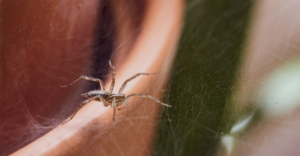Many individuals suffering from arachnophobia seek solutions to rid their surroundings of spiders, sparking a debate between environmentally friendly and natural methods versus chemical remedies available at hardware stores.
The population appears to be divided into two distinct categories when it comes to their attitudes toward spiders: those who appreciate the world of creepy crawlies and those who will go to great lengths to avoid any close encounters.
Those who find fascination in these eight-legged creatures, especially spiders, understand that most spiders are harmless and not inherently aggressive. However, for those who fear or despise them, maintaining a considerable distance is the only way to find solace.
We highlight the crucial ecological role played by spiders, even though some can be venomous. They contribute significantly to our ecosystems by keeping other insects in check. Yet, eliminating spiders entirely from our surroundings can be a challenging task, given their ability to hide behind walls and structures.
As more people become aware of the benefits that spiders can bring, a shift towards compassionate methods of dealing with them is emerging. These approaches involve capturing spiders and releasing them into vacant fields or gardens, allowing them to control more dangerous insects. However, it is noted that there is a lack of empirical evidence proving the effectiveness of natural treatments compared to their chemical counterparts.

We introduce essential oils as potential spider repellents. Peppermint oil, in particular, is believed to deter spiders due to its strong odor, which they avoid by taste and smell through their legs. The monoterpenoids found in essential oils, considered botanical fumigants, are thought to be responsible for this effect. We provide a recipe for a homemade spider-repellent spray using peppermint oil diluted in water.
However, we emphasize the importance of handling essential oils with care, diluting them, avoiding eye contact, and being cautious with pets. Other natural spider repellents mentioned include lemon oil, eucalyptus oil, tea tree oil, citronella oil, and lavender oil.
Additionally, we suggest using cedar mulch in yards to discourage spiders from gardens and homes and mention sticky glue traps as a less compassionate but natural alternative.
Traditionally, chemical insecticides were widely used to eliminate spiders and other household pests. While effective, they pose environmental and health risks. Various chemical options, such as carbaryl and pyrethrins, are discussed, along with their potential harm to ecosystems and human health.
Preventive measures to reduce spider infestations include regular cleaning, removal of spider egg sacs, and sealing doors and windows. In cases of severe infestations or venomous spiders, seeking professional help is recommended. Ultimately, we encourage the reader to choose the most suitable approach based on their preferences and the specific circumstances they face.


